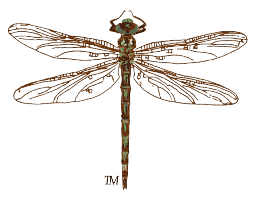An Essay on Change
silvae/shutterstock.com
Art Crowe
The world is constantly changing. There are numerous simultaneous natural cycles. Some are short term, some moderately long, and some extremely long. An example of a short-term cycle would be your skin; it changes every cell over a 28-day period (NIH National Library of Medicine). Our livers replace every cell over a six- to eight-week period (How Is The Liver Like a Starfish and a Lizard?). An example of a moderately long cycle would be the drought in the western United States, which has been going on for four or five years now. Nine separate winter storms this past December and January dumped 32 trillion gallons of precipitation, producing record snowpacks in the High Sierras. Before the winter of 2023 was done, there would be 10 or 12 different atmospheric rivers, each putting down different layers of snowpack. There will be at least two separate snow melts this spring, not to mention mudslides and avalanches. This summer may see California’s reservoirs at some of their highest historic levels.
Here in the Hill Country of Texas, our severe drought has lasted for a full year now. NOAA’s Climate Prediction Center recently announced the end of the three-year La Niña cycle, which usually produces our droughts. I call that somewhere between a short-term and a moderately long-term cycle. Whatever it is, our drought will eventually end. A drought is a weather event.
Climate cycles are much longer term weather cycles, which play out over hundreds or thousands of years. We are all aware of the dangers of our current climate cycle. Another example of a long-term cycle would be the geologic cycle. All the land we are walking on now was a shallow inland sea during the Cretaceous. That period in Earth’s history lasted from 66 to 140 million years ago. But change, especially long-term change, promotes adaptation and evolution. Without change, there would be no need to evolve.
solarisys/shutterstock.com
There is a misconception about evolution that I would like to see ended. Evolution is not survival of the fittest. Evolution is now known to favor those species that cooperate with one another and who live within their ecosystems without altering them. I am a marine biologist by training and by profession. I’ve learned there is no better place to look for cooperation than a coral reef. The corals themselves are an example of symbiosis: one animal (an alga) lives with another (a coral polyp) for the mutual benefit of both. And it doesn’t stop there. Those very reefs provide habitat for countless species of invertebrates: sponges, star fish, urchins, sea slugs, etc., and more fish species than most marine biologists can identify.
silvae/shutterstock.com
My favorite place on a coral reef is the cleaning station. Almost every reef of any size has one. On the Florida Keys, where I have had my most experience with reefs, it is usually a large brain coral.
©John Anderson/adobe stock
Fish of all species come here, including barracuda, to have their gills cleaned of parasites, either by a cleaning shrimp or a wrasse.
New Media and Films/shutterstock.com
To be sure a coral reef is a dangerous place to live; but everywhere in nature, there is danger. Predators abound throughout the ocean—not in the numbers that they used to, however.
Considering the dramatic drop in the health of coral reefs throughout much of the world, the National Geographic Society recently undertook a survey of some of the least-impacted coral reefs left on the planet. They went to the island nation of Kiribati in the South Pacific, northeast of Australia. They chose three reefs that are too remote for all but the most foolhardy of fisherman. As expected, they found corals in excellent health. Species diversity was high, as was biomass. The biomass of sharks was four times what it was on nearby moderately degraded reefs. But what really floored everyone was that having more predators seemed not to threaten the overall success of everything! All life can evolve and thrive if there is cooperation and community.
Lewis Burnett/shutterstock.com
Coral reefs are a metaphor for humanity. Sharks are everywhere: the war in Ukraine continues, the Cold War is heating up, there is gun violence, political division, social and environmental degradation. Many people ask what’s wrong with our world. The answer is that we live in a society that is competitive instead of cooperative. For too many people it is about climbing the ladder at any cost, eat or be eaten, get more stuff, more status. This is survival of the fittest!—or rather, of the most selfish.
What the world needs now is more cooperation, more collaboration, more compassion, more generosity. We are hardwired to be generous. Why else is it that when we do a good deed for someone else, we walk away feeling better. As members of a volunteer organization, we freely give of our time. Research has shown that people who frequently volunteer their time live longer and have less chance of developing Alzheimer’s disease.
We live in a changing world. We are faced with many choices. We can choose to compete or cooperate. How well we adapt to the challenges of our changing environment will determine how well we survive.
Further reading suggestions:
The Book of Joy: Lasting Happiness in a Changing World. His Holiness the Dalai Lama and Desmond Tutu, with Douglas Abrams. 2016. Penguin Random House Books. 371pp.
Ladder to the Light. An Indigenous Elder’s Meditations on Hope and Courage. 2021. Broadleafbooks.com. 171pp.
The Book of Hope. A Survival Guide for Trying Times. Jane Goodall and Douglas Abrams with Gail Hudson. 2021. Celadon Books. 249pp.
